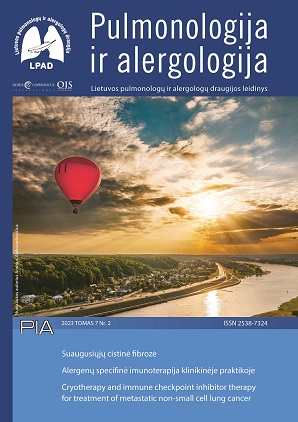SAFETY ANALYSIS OF EXTENDED PEMBROLIZUMAB DOSING FOR METASTATIC NON-SMALL CELL LUNG CANCER PATIENTS
Abstract
Pembrolizumab is a monoclonal antibody against programmed cell death protein-1 (PD-1) for the treatment of metastatic non-small cell lung cancer (NSCLC), either as monotherapy or in combination with chemotherapy, depending on the programmed cell death-ligand 1 (PD-L1) expression in tumor tissue. The prolonged dosing regimen of pembrolizumab allows to reduce the number of patient visits to health care facilities while maintaining the therapeutic effect and without increasing the frequency of adverse reactions. Special attention should be paid to the occurrence of immune related adverse reactions when switching from the standard pembrolizumab dosing regimen to the extended one, since these reactions may occur after the first cycles of the new regimen and may help predict treatment response.


